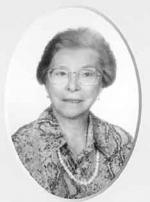
1926-2017
When World War II broke out on Sept.1,1939, I lived with my parents, a sister, and a brother in Bielsko, Poland.
My family and I fled ahead of the advancing German army to a city by the name of Sosnowitz.We were overtaken there by the Nazi forces and were unable to continue.We were rounded up with hundreds of other Jewish refugees and put in a ghetto in that city.
We lived under primitive and inhuman conditions 3 to 4 strange families in one room until two years later, in September 1941. At this time I was separated from the rest of the family who was shipped to Auschwitz Concentration camp and murdered.
I was sent to a forced labor camp that later changed into a concentration camp, located in Parshnitz, near Trutnow, Chechoslovakia.I have been put to work at a textile factory on the night shift. I had to watch four high speed automatic weaving looms. There were always threads breaking and I had to run all night from one loom to another,and keep splicing the threads and keep the looms running. The material we were weaving was for German army uniforms and it was of such poor quality that’s why it was constantly breaking. Sometimes I could not keep up with the breakage,and I was accused of sabotage. The female SS guards who watched us gave us severe beatings in such cases.
Then things got bad for the Nazis and no material for uniforms was arriving at the factory. I was sent out on a construction site where all the women prisoners were building a railroad line. One day, while I was on top of a rail flatcar,unloading rails used in the construction, the car was accidentally hit by a moving railroad engine. I was thrown off the car to the ground below and seriously injured my arm and legs, as did other women who also were on that car. One woman was killed in that freak accident
We were hungry all the time,and people were dying all the time, from starvation or sickness. We had lice on our clothes and bodies. We had no water available to launder our soiled clothes, and we had only what we had on our backs. In winter, in order to find a little warmth, we used dirty paper cement bags,which we put under our shirts and pants, to keep out the icy wind.
In the spring of 1945 the camp was surrounded by Russian soldiers and the SS guards surrendered or ran away. Hundreds of ill and starving women were taken to a hospital. The male SS guards were shot by Russian soldiers and the female guards had to bury the dead prisoners,who were lying all over the camp.
After two months in the hospital I recovered from typhoid fever and starvation. I went to search after my family. I found my brother who spent the war in a male concentration camp. No one else of my family survived.
